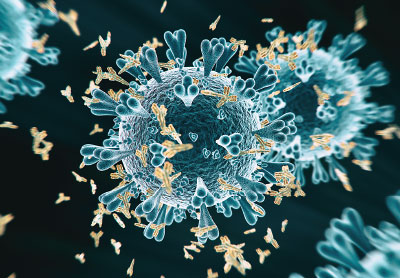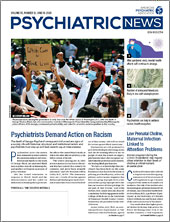APA’s Ethics Committee has received a number of questions related to ethical practice during the COVID-19 pandemic. Below are some of them, along with the committee’s responses.
Q. In a public health emergency like COVID-19, is it ethical to practice outside my normal area of competence?
A. Several competing interests are brought up by this question: (1) the responsibility of physicians as a profession to serve the public good and community at large during a public health crisis, (2) the responsibility to practice competently and not unnecessarily expose patients to risk, and (3) the possibility of personal liability if a physician practices outside his/her/their usual scope or environment when harms as well as benefits may occur.
Each individual psychiatrist, when confronted with the possibility of practicing outside of his/her/their usual practice area, must think first about what he/she/they are sufficiently competent to do or become competent to do with supervision and training. Psychiatrists are trained as physicians. One’s competence to step into a general medical unit may depend upon the time elapsed since medical school and internship, the degree to which one has kept current in general medicine through education and practice experience, the ability to be part of a team with other physicians and to hone skills that have not been recently used, and the training and supervision available to enable one to step in in a manner that will be helpful outside of one’s area of expertise.
Ultimately, individual physicians remain responsible to resist if they are asked to practice medicine in a manner for which they lack competence, have no ability to become competent quickly, and therefore could not provide adequate care. The physician principle to avoid harm always applies. Individual psychiatrists must not allow themselves to be pressed into actions that, because of a lack of competence, are reasonably likely to cause harm to patients. Appropriate training, supervision, and provision of appropriate personal protective equipment by health systems and governments are important aspects of expecting and allowing psychiatrists and other physicians to competently practice outside of their usual areas of practice. Psychiatrists who do not believe they can competently assist outside of psychiatry (for example, staffing medical respiratory clinics or operating ventilators) may nonetheless contribute to the pandemic response in other ways. For example, psychiatrists may provide telepsychiatry to frontline workers and take on some of the patient load of psychiatrists who have stepped into other medical roles. They may also contribute as citizens (for example, by making donations of blood or donating food to hospital workers or communities particularly impacted by the virus).
States have approached the issue of potential personal medical liability differently. APA is advocating for the passage or expansion of Good Samaritan laws and liability exceptions during the COVID-19 crisis for physicians who in good faith provide care during the epidemic that is outside their established competence or normal area of practice.
APA’s statements and guidance on the deployment of psychiatrists during this epidemic address many of these issues and are consistent with these ethical guidelines.
Q. Does APA have a position on reopening offices given that telehealth remains an option? What happens if a patient gets sick and it is traced to your office? How do you participate in contact tracing and maintain confidentiality?
A. While APA does not have an official policy or position statement regarding the use of telehealth during the early phases of reopening following COVID-19 closures, it expressly recognizes that, for patients who have responded to telehealth, the safest way to continue providing treatment in the early phases of reopening is through telehealth even as some physical clinical locations begin to reopen. A psychiatrist may try to work with patients to increase their comfort with and benefit from telemedicine technology. When a psychiatrist determines that in-person assessment or treatment is necessary to provide competent care for particular patients, psychiatrists must take appropriate precautions to protect themselves, their staff, and patients from risk of COVID-19 exposure during patient visits. Psychiatrists who will provide in-person treatment should consult, among other things, guidance provided by the Centers for Disease Control and Prevention and federal, state, and local authorities as well as all recommended infection control practices set forth therein. As physicians, psychiatrists have a duty to promote public health and take steps to protect themselves and others from exposure during the present circumstances of the COVID-19 global pandemic.
Psychiatrists should request that any patient who has received in-person treatment contact them if the patient or any member of their household tests positive or becomes ill with COVID-19, regardless of the presence and/or severity of symptoms. In addition, as a reminder, psychiatrists are always responsible for informing patients that there may be limits on the confidentiality of a treatment session. Specifically, during the COVID-19 global pandemic, psychiatrists should expressly inform all patients who require in-person treatment that the psychiatrist may need to reveal confidential information, including the identity of the patient, in light of the psychiatrist’s public health obligations. ■
APA members who have questions about ethics issues related to the COVID-19 pandemic are invited to send them to the
Ethics Committee. The committee will respond directly to those who submit questions.
More opinions are posted
here.

